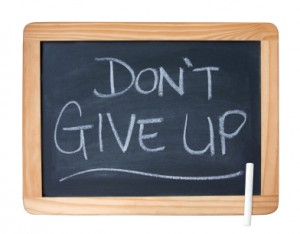 Navigating today’s demanding and ever-changing job market is tough—no matter what age you are. If you’re 50 or over, however, learning the ropes can be even more of a challenge. It’s highly likely that it’s been years upon years since you last searched for a job, and the market has changed tenfold since you were in this position.How do you navigate this strange new territory?How do you reach out to the people you want to hire you?Just what is the key to writing resumes that get you hired in today’s world?We have a few tips on things to avoid to help make your search easier.
Navigating today’s demanding and ever-changing job market is tough—no matter what age you are. If you’re 50 or over, however, learning the ropes can be even more of a challenge. It’s highly likely that it’s been years upon years since you last searched for a job, and the market has changed tenfold since you were in this position.How do you navigate this strange new territory?How do you reach out to the people you want to hire you?Just what is the key to writing resumes that get you hired in today’s world?We have a few tips on things to avoid to help make your search easier.
Personal Stagnation
Regardless of age, it never hurts to learn new things—information, viewpoints and especially skills. Think about the skill set you have now. How well does it sync up with the job listings you’ve seen this decade? Are there any skills you’ve seen that have stumped you, or that you know you have no idea how to perform? Don’t let this become a detriment to you and hurt your chances of getting hired!While you’re searching for a new career, it would serve you well to start looking into expanding your skill set by taking some adult educational classes. If you aren’t good with computers and other electronic devices, now is the time to learn. If you need to be familiar with a certain kind of software to qualify for the positions you’re seeking out, consider seeing if your nearest learning center has classes for it.
A Lacking LinkedIn
You’ve very likely heard of LinkedIn at some point during your professional career. It’s a business-oriented social networking site and has become increasingly important in recent years. Most professionals today use it to network with other people in their industry, meaning if you don’t have a LinkedIn account of your own, you’ll want to invest some good old time and effort into putting one together and keeping it active and updated.You never know who might notice you on LinkedIn, especially since so many of today’s hiring managers use the site to find potential candidates. If you can’t make heads or tails of LinkedIn, you can even hire a professional LinkedIn profile writer to lend you a hand.
Ego Trouble
Because you’ve been in the workforce for so long, especially as a senior-level professional, you’ve racked up a lot of accomplishments. While this is certainly commendable and even worth acknowledgment, you should keep in mind that by looking for new work, you’re much closer to square one than it may seem. Be humble about your skills, and don’t limit yourself as far as the positions you can acquire. Similarly, you don’t want to be too meek and cheat yourself out of a great position. Simply communicate, connect with every fellow professional you meet and don’t let your personal opinions get in the way of your search.
And don’t forget you can always rely on a professional resume writing service for help with your job search and to help you maneuver through today’s job market!
 Make no mistake about it: job boards are a thing of the past. In the past, you may have posted your resume on a job board and had a reasonable shot at getting a new job opportunity; however, the way skilled workers find jobs has changed. The vast majority of these boards have become black holes for your executive bio and resume.
Make no mistake about it: job boards are a thing of the past. In the past, you may have posted your resume on a job board and had a reasonable shot at getting a new job opportunity; however, the way skilled workers find jobs has changed. The vast majority of these boards have become black holes for your executive bio and resume.
Social media sites like Facebook, Twitter and, most notably, LinkedIn are beginning to make traditional job boards obsolete. Recently, around 2-4% of people posting resumes on a traditional job board found employment. Individuals employing networking tactics on various social media sites found a career 40-50% of the time.
We’re not mathematicians, but it seems like networking is just a little bit more successful for most seeking employment. If you look at things from a recruiter’s or hiring manager’s standpoint, we can see why. Would you rather hire someone you only know from a piece of paper or an individual who has been personally recommended to you by someone you know and respect?
Your job search doesn’t have to be rocket science. Here are a few more reasons why traditional job boards don’t work:
Companies get hundreds, if not, thousands, of responses to online job board postings. Then they send every resume to a system that reviews and ranks their skills, experience and more. The hiring manager only looks through the top 10-20% of resumes sent in. The vast majority of resumes never even see human eyes when you submit via a job board.
Most of the best jobs never even hit the jobs boards. Many hiring managers have stopped posting on these boards altogether. Companies have started using recruiters and networking to find the right type of talent without having to spend days under hundreds of resumes.
When you submit your executive profile to a job board, you’re not putting your information in front of any decision makers whatsoever. Your resume ends up in front of a lackey whose job is to reject you for any reason. If you want to get in touch with someone who can make a decision, you’re much better off using social media sites and developing your networking skills.
If you get a hiring manager to speak honestly, they prefer to find candidates through LinkedIn more than any other way. LinkedIn is up-to-date and current. Successful employees use LinkedIn to further their career. People with decision-making power know this. That’s why they use the site to find the people they really want to hire before aggressively pursuing the candidate.
Getting Back in the Game?
Are you looking for employment? Ready to dust off the ole’ executive bio and profile? If so, you’ll want to be on the top of your game. It’s a competitive job marketplace out there, it’s important to give yourself an edge whenever you can. Successful job seekers know how to work their network and find the best job.

When writing a professional resume, think ahead to your compensation.
When you’re looking for a new job, you likely have a salary goal in mind. As you’re writing a professional resume, you begin thinking about what you’re really worth. However, when you’re presented with a job offer, you may feel like you either have to take it or leave it. However, this is not the case. With careful c-level personal branding and these tips, you can negotiate a better salary and gain the compensation you deserve.
Research Average Salaries
Salaries vary dramatically due to a variety of factors, including location, industry, education level, experience and employer budget. What you make at a position in one location may be significantly more or less in another location. Performing your due diligence can help you learn how much you can expect to earn in a given position. Consider both local and national statistics for a clearer picture. Be sure to bring this information along to show a prospective employer.
Think Creatively
Compensation isn’t limited to what you bring home in your paycheck. There are other ways you can be compensated for your time and can help you boost your salary negotiations. If your prospective employer won’t increase your starting salary, consider asking for a performance review in six months to give you time to prove your worth. You may also inquire about:
- Signing bonuses
- Stocks
- Tuition reimbursement
- Paid time off
- Flexibility in your work schedule or location
These terms can bring value without increasing the salary your employer will pay.
Be Prepared to Walk Away
If you’re writing a professional resume, you are looking for a new job, but that doesn’t mean you have to accept whatever comes your way, no questions asked. Instead, you need to understand your worth and be prepared to walk away if an employer doesn’t realize that value. If you are the ideal candidate for the position, there is a chance they will offer you more once you let them know you are no longer interested. However, you need to be prepared to follow through if they don’t change their offer.
Practice
Like all other areas of life, practice makes perfect. There is value in practicing your negotiating skills with family members or a friend before you head to the negotiating table. Make sure your loved one offers some resistance so you can practice what you will say when the time comes.
Negotiating your salary can be one of the most difficult aspects of interviewing for a new job, especially for women. While you focus on your c-level personal branding when writing a professional resume, you must understand what your real worth is so you can fight for every cent you deserve.

We are accustomed to any number of conventional interview questions, and everyone has their favorites. But many shrewd CEOs and executives are digging a little deeper, looking beyond what they see in a job candidates’ executive profiles, resumes and cover letters. They are asking some very unusual interview questions designed to reveal more of your personality and ensure you are the perfect fit for their company.
“What would you do in the event of a zombie apocalypse?”
— Ashley Morris, Capriotti Sandwich Shop CEO
Of course, there is no right or wrong answer here. It’s simply a fun question Morris likes to ask to see how a candidate will respond under pressure. This gives him a feel for how effectively they react without prior thought or planning, as well as insight into their moral compass and whether they will fit into the company’s culture.
“What’s your superpower … or spirit animal?”
— Ryan Holmes, HootSuite CEO
Holmes feels the response he gets to this question gives him a greater understanding of a candidate’s work habits, beyond what’s seen on an executive’s profile.
“On a scale of one to 10, how weird are you?”
— Tony Hsieh, Zappos CEO
One of the reasons Hsieh likes to ask this quirky question is to ensure the candidate is a good fit for the casual culture of Zappos. According to Hsieh, whose company values include fun and a little weirdness, it’s not really important what number you choose, unless it’s at the extreme end, such as one or ten. Whereas a one might indicate you are too conservative for his company, a ten, on the other hand might show a tendency toward being a little too weird for them.
“Tell me something that’s true, that almost nobody agrees with you on.”
— Peter Thiel, PayPal co-founder
Co-founder of PayPal Thiel values those who are not afraid to say what’s on their minds. He finds this question, though uncomfortable, helps him see how courageous a candidate can be in discussing something that may be in direct opposition to the interviewer’s opinions.
“What was the last costume you wore?”
— David Gilboa, Warby Parker co-CEO
What the candidate remembers wearing isn’t a problem. It’s more about making sure they fit in with the eyewear retailer’s relaxed environment. With core values that include adding “fun and quirkiness” into everything they do, Warby feels that even the most capable candidate would be a mistake to hire if their work style was not a good fit.
“Tell me about your failures.”
— Jenny Ming, president and CEO of Charlotte Russe (former chief executive of Old Navy)
Resumes and cover letters don’t show failures, only successes. Ming feels this question is a good test of how willing the candidate is to take a risk, and being honest enough to acknowledge when things don’t go right. The example could come from either personal or business life. What’s important is how the person handled the failure and how they overcame or moved forward afterward. The clothing store executive says the responses give her insight into how willing the candidate is to admit when something goes wrong.
So, to prepare, you might want to start thinking about what your super power or weirdness level is so you are ready for your next interview.

Are you one of those people who talk when they are nervous? It’s pretty easy to do — and very damaging to your career if you don’t learn how to control it. That old adage about having two ears and one mouth so you can listen twice as much as you talk is actually good advice for every part of your working world, from the interview to get the job to the moves into management and executive leadership.
The Big Mistake You Can Make
When you sit down for an interview, one of the big questions in the interviewer’s mind is what you will be like to work with. It’s a valid question because most jobs do involve some level of teamwork. So in order to answer the big questions, the way you answer smaller questions is observed. Speaking without listening is a red flag because it indicates that since you don’t listen here, in the job interview, you won’t listen later, on the job.
If you are rehearsing your “hire me” job spiel in your head, waiting for the chance to present it, then you aren’t going to be hearing the questions they ask. You’ll be answering the questions you think they will ask — and that is not the same thing at all.
It is a good preparation tactic to think through questions that may be asked in an interview. But that’s not a script you are rehearsing, and the interview may not involve those questions at all. It’s better to make sure you actually hear what is being asked so you can answer the question.
The Leadership Skill of Listening
One of the reasons that the skill of listening is a mark of leadership is because truly hearing what people are saying gives added perspective to a problem so it can be solved. Listening is a mark of respect for the speaker, and true leaders value those on their team as important contributors. Learning how to listen is part of honing your interview skills, but being able to listen and contribute value to the conversation by being on the same page is a skill you will need all your life.

It stings when you are not hired after an interview for a job you really wanted. It stings even more when you are sure you are well-qualified for the position and have worked hard on your resume and interview skills. What you do with rejection is going to make a big impact on what happens next.
Don’t Assume That You Are The Reason For Rejection
A company has to conduct interviews even if they already know someone inside the corporation is getting a position. It may be that you are well-qualified for the position, your resume is stellar, and you were impressive during the interview, but the person who is getting the job has the advantage of experience.
Getting into a downward spiral of dejection in this case is a mistake. You aren’t the reason for rejection if someone else is a better choice for the job because it isn’t your failure that determined the choice here.
Admit What Is Wrong
Sometimes you actually are the reason for the rejection. It might be that you didn’t seem like a good fit for the company culture, or you didn’t look the interviewer in the eye and that came across as sneaky. Maybe you were sloppy or had too much makeup or wore perfume that made their nose itch. Perhaps you checked your cell phone for messages during the interview or some other automatic habit was a problem.
The only way to know is to work on honing your interview skills and getting help identifying your blind spots.
Be Willing To Change And Learn
If you got to the interview stage, your resume and cover letter are probably not the problem. It’s not a bad idea to go over them to make sure your qualifications are evident for the next submission, but they were good enough to get you in the door for a face to face talk. Congratulations! An interview is still a good thing even if you didn’t get the job.
You have the experience of that interview to build on, and the knowledge that you were impressive enough to call in. Now it’s time to analyze what happened and learn from it. Appreciate all the advice you can gather, apply it analytically without letting your feelings get in the way, and let rejection be the catalyst that makes your success a reality.

There was a very interesting study done at the University of British Columbia where narcissistic behavior was studied in context of job interviews. According to UBC Psychology Prof. Del Paulhus,
“A job interview is one of the few social situations where narcissistic behaviours such as boasting actually create a positive impression. Normally, people are put off by such behaviour, especially over repeated exposure.”
The study was conducted by having participants answer questions to rate their narcissism, then be observed in a job interview scenario. Those who fell higher on the narcissism scale made more eye contact, asked questions, talked about themselves, and joked around a bit. This made them more attractive as candidates despite the reality of what they’d be like as coworkers.
It’s also interesting that a cultural bias was observed, where candidates from cultures emphasizing humility (as do many Asian countries) did not impress as well during the interview despite being equally qualified. I think many women also have been trained to avoid being pushy and this would apply to that as well.
Interviews Need Some Narcissism
There’s a difference between a self-inflated egoist and a legitimately confident candidate. If you are qualified for the position and have the resume to show it, you’ve got healthy reasons to talk about why you are the best fit for the job. Your qualifications are the foundation of your confidence and you just need to look at yourself carefully to build on it.
- Making eye contact is a skill that takes practice if you aren’t used to it. Remind yourself to do this with people you talk to all the time and it will get easier.
- Asking questions also takes some skill. Do some research on questions to ask at your job interview and be prepared.
- Talking about yourself isn’t comfortable if it was discouraged in your past. Think about the reason you are talking; they need to know if you will be a good fit for their company. Help them know you by sharing who you are.
- Joking around a bit can backfire if you really are a narcissist because there’s an insensitivity to people around you. But being comfortable enough to joke makes everything a little less stressed.
The question in the title was, “does your ego show during the interview?” The answer to that question depends on how you view “ego”, but there’s truth to the idea that who you are needs to come across when you sit in the interview chair. Narcissists aren’t afraid to talk about who they are, and that’s why they make such good impressions in job interviews.

It happens to everybody: You make a mistake about something during your important interview. It my the way you dressed for the occasion and you went too formal or too casual. It might be addressing your interviewer by the wrong name. There are lots of ways a candidate can make a mistake, and it’s true that a mistake can possibly cost you the job. It’s also true that the way you respond to your own mistakes can be what makes the interview successful and gets you the job.
Mistakes Can Be Opportunities
Everyone makes mistakes, but those who are confident enough to admit their mistake and correct it appropriately are valuable in any workplace. If you walk into the interview without having done anything to hone your interview skills or research the company, then your mistakes will be more like learning opportunities and use the interview as a reminder to be prepared next time. But a mistake by an otherwise qualified candidate is an excellent opportunity to display how you will be on the job.
It’s helpful to remember that most interviewers will give you cues for correcting something. If you are not obsessing about being dressed too formally or whatever your mistake was, you can pick up on those cues and correct it. It shows that you are able to see past your discomfort and effectively respond to a problem.
This is a skill that everybody needs. When you get defensive and defeated about making a mistake, it’s making that mistake worse because you are amplifying and distorting it instead of seeing that mistake as another reminder that you are human like the rest of us. It’s a skill because it has to be learned, and you learn from your mistakes.
If you make a mistake in your interview, that’s an opportunity. Learn from it.
 Navigating today’s demanding and ever-changing job market is tough—no matter what age you are. If you’re 50 or over, however, learning the ropes can be even more of a challenge. It’s highly likely that it’s been years upon years since you last searched for a job, and the market has changed tenfold since you were in this position.How do you navigate this strange new territory?How do you reach out to the people you want to hire you?Just what is the key to writing resumes that get you hired in today’s world?We have a few tips on things to avoid to help make your search easier.
Navigating today’s demanding and ever-changing job market is tough—no matter what age you are. If you’re 50 or over, however, learning the ropes can be even more of a challenge. It’s highly likely that it’s been years upon years since you last searched for a job, and the market has changed tenfold since you were in this position.How do you navigate this strange new territory?How do you reach out to the people you want to hire you?Just what is the key to writing resumes that get you hired in today’s world?We have a few tips on things to avoid to help make your search easier.







